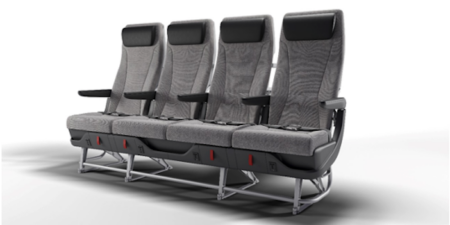March 15, 2017 – Embraer has announced that it is forming innovation teams in the USA, with the objective of exploring business opportunities in the future of air transportation through collaborations with startups, investors, academia and corporations. The team is seeking partnerships that enable new business models and technologies, and operations will begin in Silicon Valley and Boston later this month.
Embraer’s new innovation teams will be coordinated by a new Global Business Center, which is being established in Melbourne, Florida. Melbourne is already home to an industrial, engineering and service unit, which will connect directly to the company’s US-based advanced innovation outposts. The center will also will be connected to, and directly participate with, the company’s engineering departments in São José dos Campos, Brazil.
Antonio Campello, director of corporate innovation, will lead the initiative, reporting directly to Embraer’s CEO. Campello has a broad experience with leadership roles in engineering, technology and business development, industrial integration and corporate strategy departments.
“A major transformation is unfolding worldwide, and it has been accelerated by the evolution of artificial intelligence, robotics, virtual reality and autonomous vehicles, immensely contributing to millions of people’s lives. This is yet another step that Embraer takes as a key player in transforming global air transportation,” stated Campello.
“We want to integrate with the Silicon Valley and Boston communities, and create value for transporting people and cargo through the world’s largest innovative ecosystems. We also remain attentive to other important poles of technological and innovation development, and to attractive new business models throughout the world, which bring value to the company,” added Paulo Cesar Silva, president and CEO of Embraer. “Embraer has excelled in its journey thus far because of our capacity to innovate in products, processes, systems, and technology.”
Annually, Embraer invests nearly 10% of its revenues in research, development, innovation and improvement of its industrial facilities. Almost half of the company’s income today comes from innovations or significant improvements implemented over the last five years.
The idea of establishing outposts to cultivate disruptive thinking has also been embraced by Airbus, which has set up its A³ think tank in Silicon Valley, with an initial project being the Transpose modular concept. Details of Transpose, and an interview with its project manager, can be found in the March 2017 issue of Aircraft Interiors International, coming out this week.




